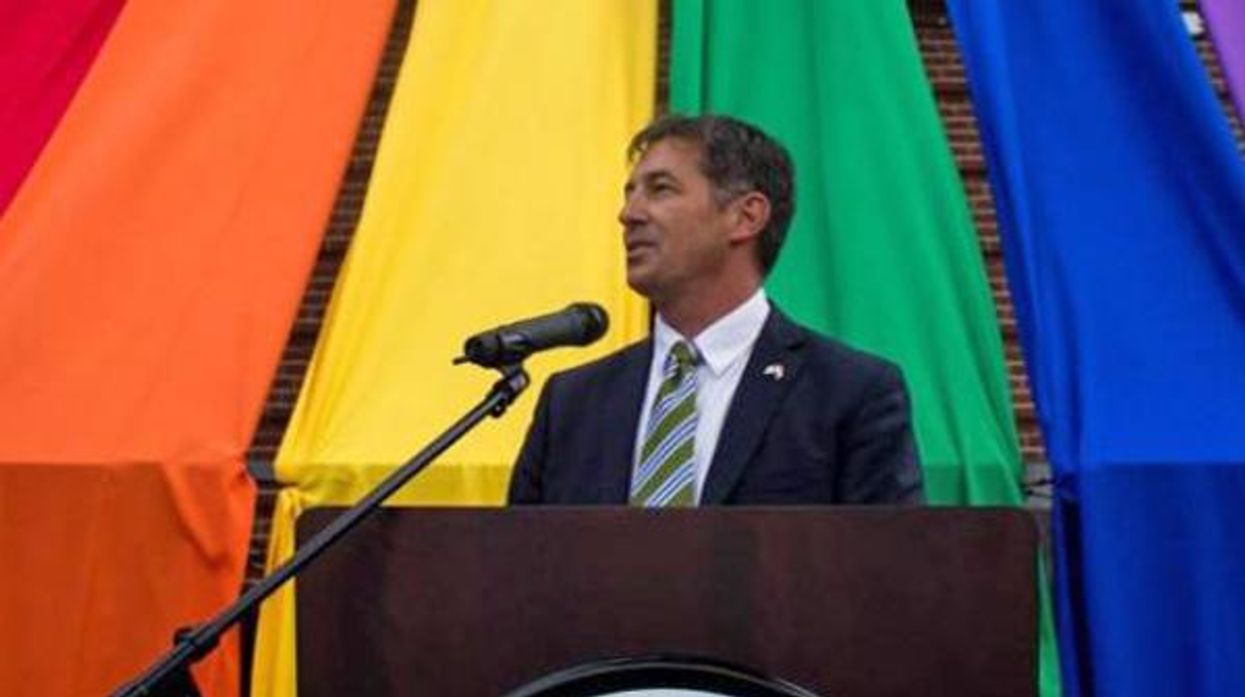
Randy Berry
Randy Berry, U.S. special envoy for LGBT rights, has his first meeting at the Vatican, seeking to form a partnership to fight violence and discrimination around the world.
November 12 2015 12:52 PM EST
trudestress
By continuing to use our site, you agree to our Privacy Policy and Terms of Use.

Randy Berry, U.S. special envoy for LGBT rights, has his first meeting at the Vatican, seeking to form a partnership to fight violence and discrimination around the world.
The U.S. State Department's special envoy for LGBT rights this week had a groundbreaking meeting with Vatican officials to discuss violence and discrimination around the world.
Randy Berry, who was named to the newly created special envoy position earlier this year, had two meetings at the Vatican Tuesday, marking his first visit there, Time reports. One was with officials from the Vatican secretary of state's office, the other with representatives from the Pontifical Council for Justice and Peace.
The meetings "marked a new level of U.S. engagement with the Catholic Church on LGBT human rights issues," Time reports. Berry, who has met primarily with faith leaders around the world since becoming special envoy, said he was there not to discuss Catholic doctrine on human sexuality or same-sex marriage but to forge a partnership to stand against the persecution of LGBT people in many countries.
"We were not there to talk about issues of civil unions or same-sex marriage, for example, because that is not part of our policy," Berry told the magazine. "That is not part of the conversation we were interested in engaging in, nor do I think were they." But "issues of violence and extreme discrimination are of concern to us all," he said.
Berry said he focused on listening to Vatican officials about how Pope Francis addresses human rights during his travels. At the end of the month, the pope will visit several African countries, including Uganda and Kenya, both nations were homosexuality is criminalized. Uganda even passed a law mandating life imprisonment for gay people in certain cases, after considering one that would have imposed the death penalty. Although the "jail the gays" law has been struck down in court on grounds unrelated to its content, homosexuality remains illegal, and the nation is a dangerous place for LGBT people, as is Kenya.
It would be too early to talk about any formal relationship between the State Department and the Vatican, Berry said, but he called the meeting promising. "It was an important first dialogue and I hope that we will continue," he told Time, further noting, "It was quite a positive experience."
Charlie Kirk DID say stoning gay people was the 'perfect law' — and these other heinous quotes